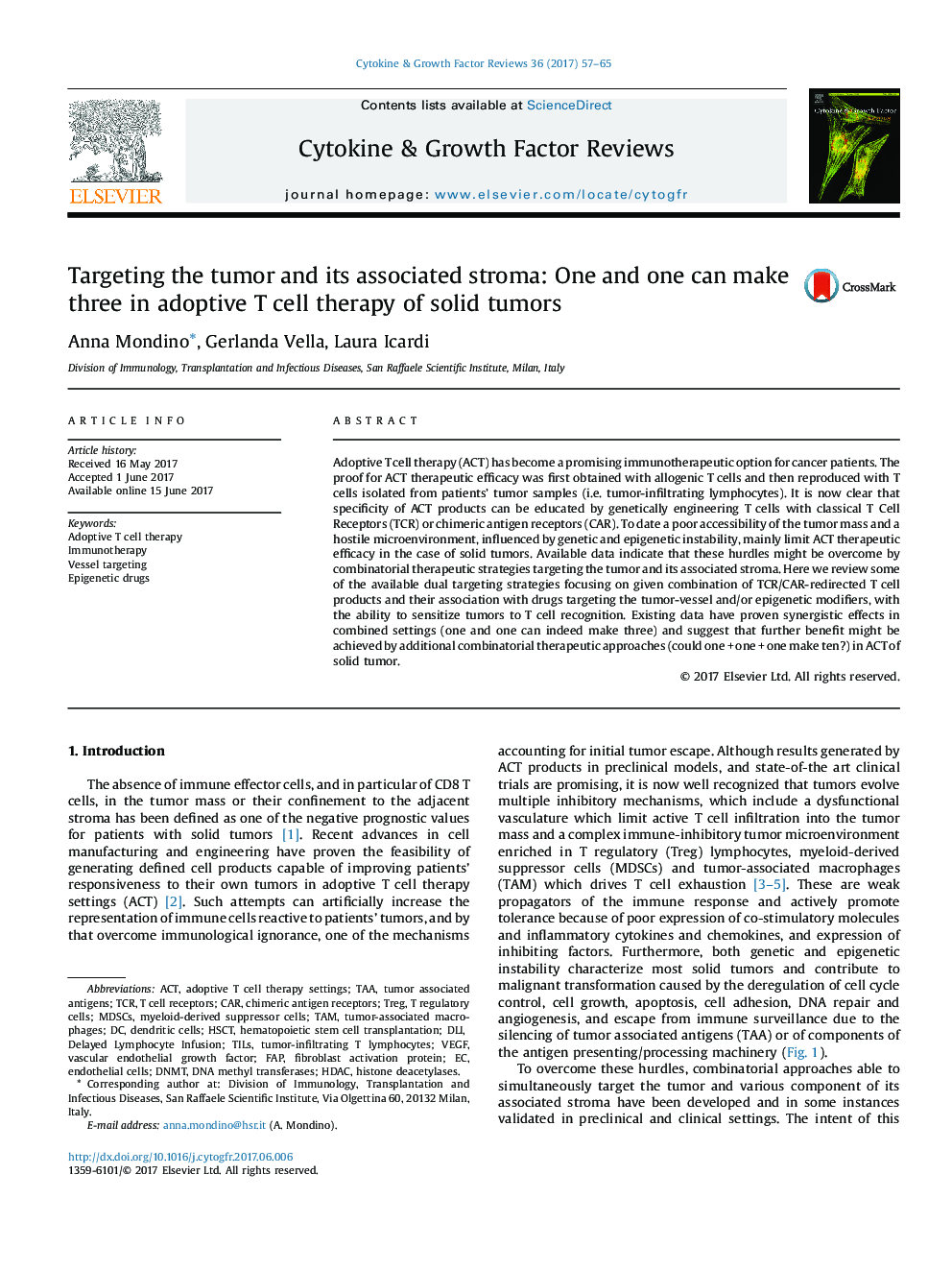| Article ID | Journal | Published Year | Pages | File Type |
|---|---|---|---|---|
| 5531191 | Cytokine & Growth Factor Reviews | 2017 | 9 Pages |
â¢TCR/CAR engineered T cells shape T cell immunity in adoptive T cell therapy for solid tumor.â¢Dysfunctional vessels and hostile microenvironments limit T cell therapeutic efficacy.â¢Vessel-targeting strategies can normalize tumor vessel and ameliorate intratumoral delivery of drugs and immune cells.â¢Epigenetic drugs can target the tumor, and various tumor-associated components ameliorating T cell reactivation.â¢Combinatorial strategy provide superior therapeutic efficacy by multiple targeting of the tumor and its associated stroma.
Adoptive T cell therapy (ACT) has become a promising immunotherapeutic option for cancer patients. The proof for ACT therapeutic efficacy was first obtained with allogenic T cells and then reproduced with T cells isolated from patients' tumor samples (i.e. tumor-infiltrating lymphocytes). It is now clear that specificity of ACT products can be educated by genetically engineering T cells with classical T Cell Receptors (TCR) or chimeric antigen receptors (CAR). To date a poor accessibility of the tumor mass and a hostile microenvironment, influenced by genetic and epigenetic instability, mainly limit ACT therapeutic efficacy in the case of solid tumors. Available data indicate that these hurdles might be overcome by combinatorial therapeutic strategies targeting the tumor and its associated stroma. Here we review some of the available dual targeting strategies focusing on given combination of TCR/CAR-redirected T cell products and their association with drugs targeting the tumor-vessel and/or epigenetic modifiers, with the ability to sensitize tumors to T cell recognition. Existing data have proven synergistic effects in combined settings (one and one can indeed make three) and suggest that further benefit might be achieved by additional combinatorial therapeutic approaches (could one + one + one make ten?) in ACT of solid tumor.
